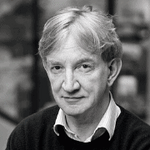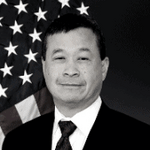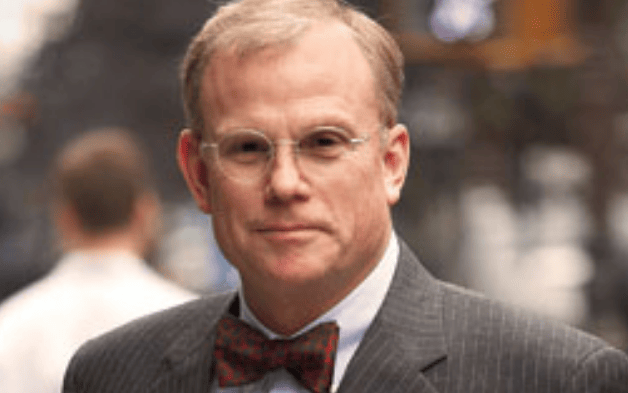This session will look at the development of a vaccine for COVID-19 and what cooperation is needed to fight the virus. More broadly it will examine the way in which bio-medical engineering is meeting the needs of changing demographics and creating a better future.
Professor Adrian Hill is director of the Jenner Institute, which focuses on designing and developing vaccines for infectious diseases prevalent in developing countries, such as HIV/AIDS, malaria and tuberculosis. He also heads a group at the Wellcome Trust Centre for Human Genetics which studies genetic susceptibility factors for common bacterial diseases. He is a passionate believer in the power of molecular medicine to design and deliver new health care interventions that will improve the lives of the poorest billion in sub-Saharan Africa and elsewhere. His own vaccine research programme has developed one of the most promising potential vaccines for malaria which is currently in large scale trials in infants in sub-Saharan Africa. In 2014 his group led the first clinical trial of an Ebola virus vaccine targeting the outbreak of Ebola in West Africa. The Jenner Institute has partnered with AstraZeneca on the global development and distribution of Oxford’s COVID-19 vaccine.
Geoffrey S. F. Ling, M.D., Ph.D., is a medical doctor who retired from the United States Army as a colonel. He served as the director of the Defense Advanced Research Projects Agency (DARPA) Biological Technologies Office and is an expert in traumatic brain injury (TBI).
Prominent in his research portfolio are neuroscience, specifically, preventing violent explosive neurologic trauma (PREVENT); prevention of traumatic brain injury; and development of responsive, brain-controlled, artificial arms. He also serves as the deputy director of the Defense Sciences Office. Ling is a recipient of the Humanitarian Award from the Brain Mapping Foundation.
Ling earned his bachelor's degree with honours from Washington University, and earned his doctorate in pharmacology from Cornell University School of Medicine. He completed postdoctoral training in neuropharmacology at the Sloan-Kettering Memorial Cancer Center. Ling earned an M.D. from Georgetown University School of Medicine. Both his neurology internship and later residency were completed at Walter Reed Army Medical Center. Ling also completed a fellowship at Johns Hopkins University, in the neurosciences critical care unit (NCCU).
Colin Tate has been an investment industry media publisher and conference producer since 1996. In his media career, Tate has launched and overseen dozens of print and electronic publications. He is the chief executive and major shareholder of Conexus Financial, which was formed in 2005, and is headquartered in Sydney, Australia. The company stages more than 20 conferences and events each year – in London, New York, San Francisco, Los Angeles, Amsterdam, Beijing, Sydney and Melbourne – and publishes five media brands, including the global website and strategy newsletter for global institutional investors conexust1f.flywheelstaging.com. One of the company’s signature events is the bi-annual Fiduciary Investors Symposium. Conexus Financial’s events aim to place the responsibilities of investors in wider societal, and political contexts, as well as promote the long-term stability of markets and sustainable retirement incomes. Tate served for seven years on the board of Australia’s most high profile homeless charity, The Wayside Chapel; and he has underwritten the welfare of 60,000 people in 28 villages throughout Uganda via The Hunger Project.
Key takeaways
Adrian
- In the last 48 hours, new vaccine trials have been started in Brazil and South Africa, supplementing the ongoing trial at Oxford.
- The aim is to have a vaccine trial result in September time and a proven vaccine shortly thereafter.
- 12 vaccines are currently in the clinic but the spirit is collaboration not competition given that up to 2 billion people may need to be vaccinated.
- This looks like a really doable vaccine.
- So far, no safety issues have been flagged with the current Oxford vaccine trials.
- It would be very surprising if by the end of the year we didn’t have significant evidence to suggest that multiple vaccines work.
- Never before have I seen so much money spent at risk in support of vaccine technology.
Geoffrey
- COVID-19 overwhelmed the ICU system and exhausted health care professionals.
- When patients are in an ICU, we are not discovering new care methods, we are applying known methods, however the cure is missing.
- We are expecting more waves of infection.
- The COVID-19 crisis is not at all unexpected amongst the medical community. COVID-19 has existed, somewhere, for 55 million years and comes after SARS, Ebola, and MERS.
- There is opportunity to invest in diagnostic testing and the technologies that have worked in this period
Unanswered questions and answers
Q: Could you talk a bit about the use of monoclonal antibodies as a potential prophylactic or treatment for COVID-19 (or other coronaviruses)? Asked by Jeremy Heer, CAIA Association
A: Geoffrey Ling: Monoclonal antibodies (mAb) are very exciting and worthy of a dedicated FIS session. Yes, mAB can be used as both therapy and, if long lived in the body, as prophylaxis. The scientific community is working on this. In many ways, the mAB process is faster and cheaper than finding and then bringing to market a novel vaccine or small molecule drug, they have revolutionized the field of therapeutics. For example, Rituximab is remarkable in how effective it is with relatively low side effects. From an investment standpoint, mAB have been quite successful commercially.






